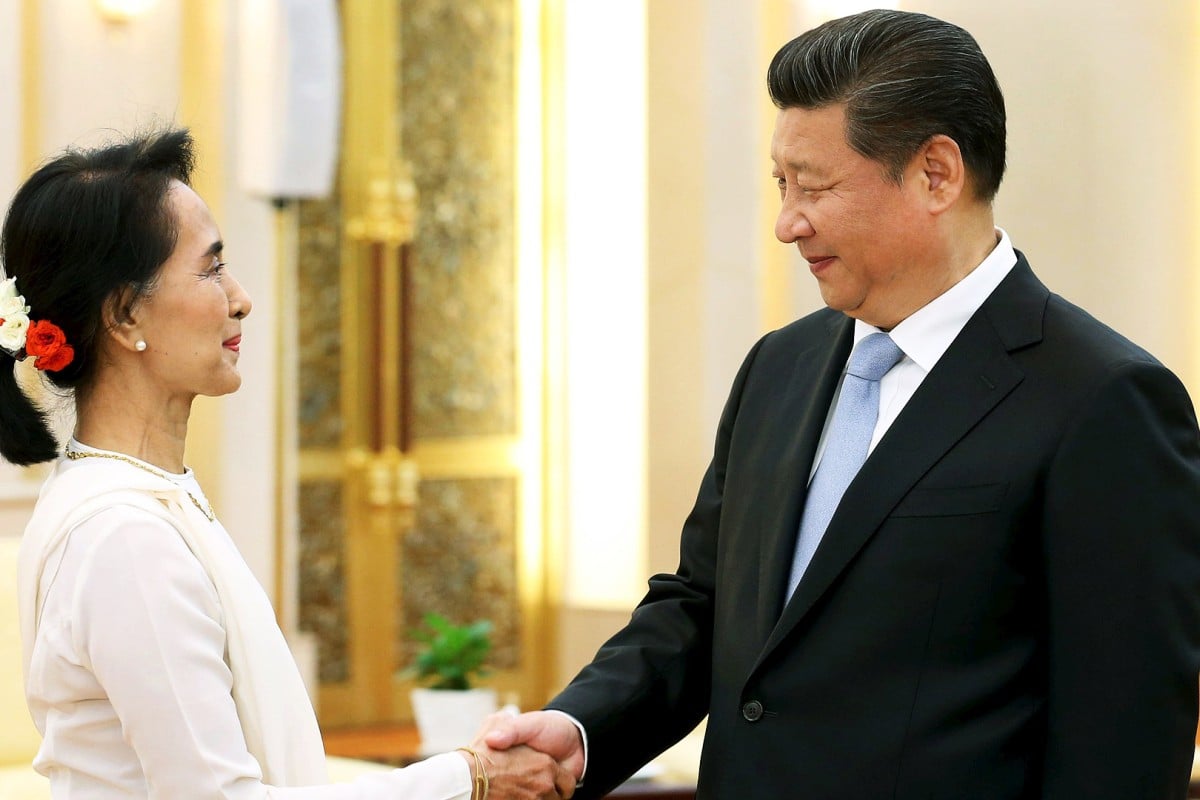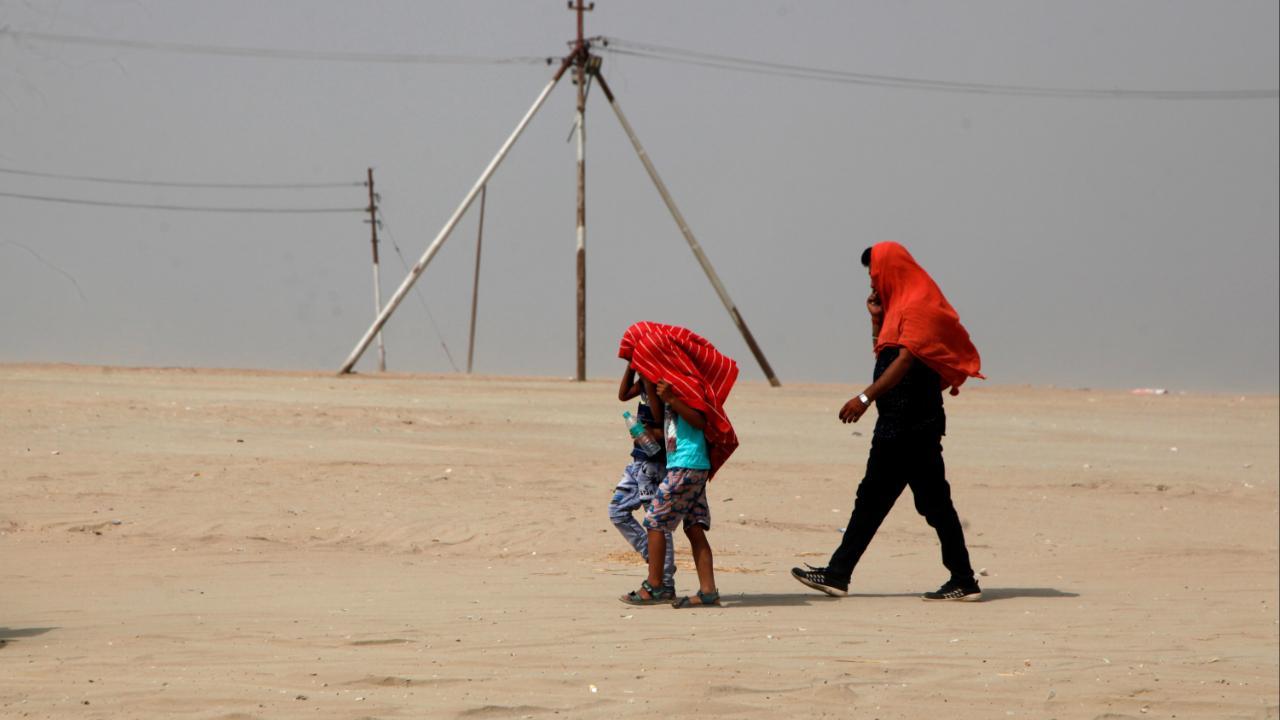Britain And Australia's Myanmar Policy: Hypocrisy Or Pragmatism?

Table of Contents
Historical Context and Shifting Relationships with Myanmar
Understanding Britain and Australia's current Myanmar policies requires examining their historical relationship. Both nations inherited colonial legacies in the region, with Britain's direct rule over Burma (now Myanmar) lasting for decades. This colonial past significantly shapes current perceptions and interactions. The 1988 uprising and the subsequent decades of military rule led to periods of strained relations, punctuated by attempts at engagement alongside sanctions. The emergence of a quasi-civilian government in 2011 brought a brief period of improved relations and increased investment, but this was shattered by the 2021 military coup.
- Colonial past and its influence on current relations: The lingering effects of colonial rule are evident in ongoing economic and political ties, but also in the complicated feelings and historical perspectives that shape foreign policy.
- Impact of the 1988 uprising and subsequent military rule: The brutal crackdown on pro-democracy movements led to international condemnation and sanctions, impacting relations with both Britain and Australia.
- Changes in diplomatic engagement following the 2011 quasi-civilian government: A period of cautious optimism led to increased diplomatic engagement and economic ties, although underlying concerns about human rights remained.
- Reactions to the 2021 coup: The coup triggered renewed international condemnation and a swift return to stricter sanctions and reduced diplomatic engagement from both Britain and Australia.
The Current Policy Approaches: A Comparative Analysis
Both Britain and Australia have adopted multifaceted approaches to Myanmar, combining sanctions, diplomatic pressure, and humanitarian aid. However, the intensity and focus of these approaches differ.
- Specific sanctions imposed: Both countries have implemented targeted sanctions, including asset freezes and travel bans against military officials and entities linked to the junta. The scope and stringency of these sanctions, however, remain a point of debate.
- Level of diplomatic engagement with the military junta: Both nations have significantly reduced diplomatic engagement with the military regime, prioritizing engagement with pro-democracy groups and the National Unity Government (NUG).
- Extent of humanitarian assistance: Both countries provide humanitarian assistance to internally displaced people (IDPs) and refugees, though the scale of this aid continues to be a topic of discussion in relation to the overall political response.
- Support for the NUG and other pro-democracy movements: Britain and Australia have expressed strong support for the NUG and other pro-democracy movements, providing financial and diplomatic backing.
The Pragmatic Argument: Balancing Interests with Ideals
Some argue that Britain and Australia's Myanmar policies are pragmatically driven. This perspective highlights the complexities of balancing humanitarian concerns with national interests and the limitations of international action.
- Economic ties with Myanmar and the impact of sanctions: Sanctions can have unintended consequences on the Myanmar economy and its people, necessitating a cautious approach to their implementation and scope.
- Regional security concerns and the role of neighbouring countries: Regional stability is a critical concern, requiring careful consideration of the potential repercussions of overly assertive policies.
- Effectiveness of sanctions and diplomatic pressure: The effectiveness of sanctions in influencing the junta's behavior remains a subject of ongoing debate.
- The limitations of international intervention in internal conflicts: International intervention faces inherent limitations, including the risk of escalating violence or unintended consequences.
The Hypocrisy Argument: Failing to Uphold Human Rights Standards
Critics argue that Britain and Australia's policies are hypocritical, prioritizing national interests over their stated commitment to human rights.
- Continued trade relations despite human rights abuses: Concerns remain about continued trade relations that may inadvertently benefit the military regime.
- Insufficient pressure on the military junta: Critics argue that the international community, including Britain and Australia, has not exerted sufficient pressure to force meaningful changes in Myanmar.
- Limited support for pro-democracy groups: While support exists, some argue that it is insufficient to counter the military regime's power and influence.
- Lack of accountability for human rights violations: The lack of effective mechanisms to hold perpetrators accountable fuels criticisms of inaction and hypocrisy.
The Role of International Pressure and the Future of Myanmar Policy
The effectiveness of Britain and Australia’s Myanmar policies is also influenced by the actions of other international actors.
- The role of the UN Security Council: The UN Security Council's response has been hampered by divisions among its permanent members.
- ASEAN's response to the crisis: The Association of Southeast Asian Nations (ASEAN)'s engagement has been criticized as ineffective in addressing the root causes of the crisis.
- Potential for increased international cooperation: Increased coordination between nations and international organizations is crucial for effective pressure on the military junta.
- Long-term strategies for supporting democracy and human rights in Myanmar: Long-term strategies are necessary to support democratic institutions and human rights, including transitional justice mechanisms and accountability for past abuses.
Conclusion: Re-evaluating Britain and Australia's Myanmar Policy
Britain and Australia's Myanmar policies present a complex interplay of pragmatic considerations and ethical dilemmas. While there are arguments supporting both pragmatic necessity and accusations of hypocrisy, the effectiveness of current measures remains questionable. The situation demands a re-evaluation of approaches, potentially incorporating stronger international cooperation, increased pressure on the military junta, and intensified support for pro-democracy forces. To further this crucial discussion, we urge readers to research organizations working on Myanmar, contact their elected officials to advocate for stronger policies that reflect the severity of the human rights crisis, and support humanitarian efforts. Only through sustained action and pressure can we hope to see a positive change in Britain and Australia’s Myanmar policy and a brighter future for the people of Myanmar.

Featured Posts
-
 50 Cent And Tory Lanez Attack Reporter For A Ap Rocky Question
May 13, 2025
50 Cent And Tory Lanez Attack Reporter For A Ap Rocky Question
May 13, 2025 -
 Landman Ali Larter Returns In Season 2 Set Photos
May 13, 2025
Landman Ali Larter Returns In Season 2 Set Photos
May 13, 2025 -
 Analyzing The Odds Teams With The Highest Probability Of Landing Cooper Flagg In The Nba Draft
May 13, 2025
Analyzing The Odds Teams With The Highest Probability Of Landing Cooper Flagg In The Nba Draft
May 13, 2025 -
 Elsbeth Needs To Make Angus A Recurring Character A Case For Continued Appearances
May 13, 2025
Elsbeth Needs To Make Angus A Recurring Character A Case For Continued Appearances
May 13, 2025 -
 Navi Mumbai Heatwave Nmmcs Aala Unhala Niyam Pala Campaign Offers Crucial Advice
May 13, 2025
Navi Mumbai Heatwave Nmmcs Aala Unhala Niyam Pala Campaign Offers Crucial Advice
May 13, 2025
